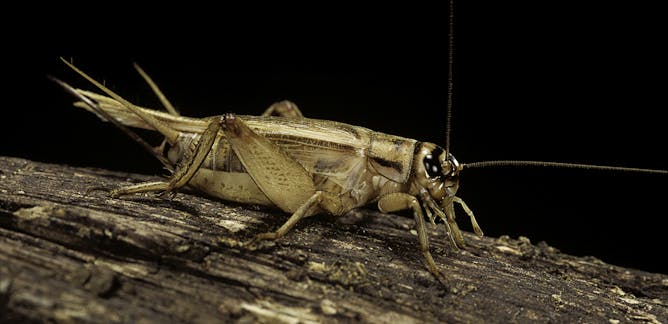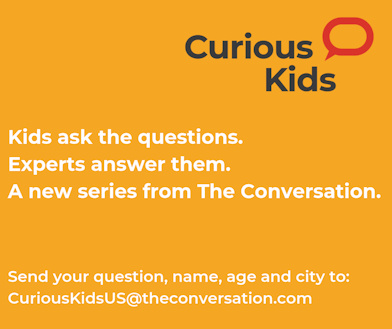
Articles on Curious Kids US
Displaying 1 - 20 of 217 articles

Only male crickets have wing structures that produce sound, but females are very good at following the signal.

Here’s a game: Tell a friend to give you any number and you’ll return one that’s bigger. Just add ‘1’ to whatever number they come up with and you’re sure to win.

Now out in space for more than two years, the James Webb Space Telescope is a stunningly sophisticated instrument.

It’s common to see solar panels on rooftops and fields, but they aren’t widespread on cars − yet.

Rock dust is only part of the story of soil. Living creatures, many of them too tiny to see, keep that soil healthy for growing everything from food to forests.

People have been flying airplanes for well over a century. Engineers know how to balance all the forces at play, but still aren’t exactly sure how some of the physics of flight actually works.

A queen’s main job in the hive is to lay eggs and pass genes on to offspring. But many bee species do just fine without queens or big colonies.

There are an infinite number of paths an ice crystal can take before you touch it.

Humans have synced their calendars to the sun and moon for centuries, but every so often, these systems need a little correction.

Stopping someone against their will can be false imprisonment or even kidnapping. There are laws that determine who is acting as a hero and who is acting as a vigilante.

Inhaling air is how you get the oxygen your body needs to turn your food into energy. Other living things use different strategies.

Turns out ‘A’ didn’t have to be the first letter in the alphabet, nor ‘Z’ the last.

Lots of factors can influence your music taste, from your age and where you’re from to the personality traits you have.

Your immune system is often able to fend off pathogens it’s never seen before. But defending your body against all of them all at once is a tough challenge.

There are so many fish in the ocean that if you took them out, important habitats and food sources for many creatures would be lost.

Pictures of black holes have a white outline around them when photographed, due to one of black holes’ unique and key features.

Two dental experts explain that these furthest-back molars may be a not-so-necessary leftover from early human evolution.

Sound needs matter to propagate, so the vast vacuum of space is not just empty − it’s silent.

No matter your age, if you’re being bullied − there’s help out there.

There are a lot of myths about crystals − for example, that they are magical rocks with healing powers. An earth scientist explains some of their amazing true science.

